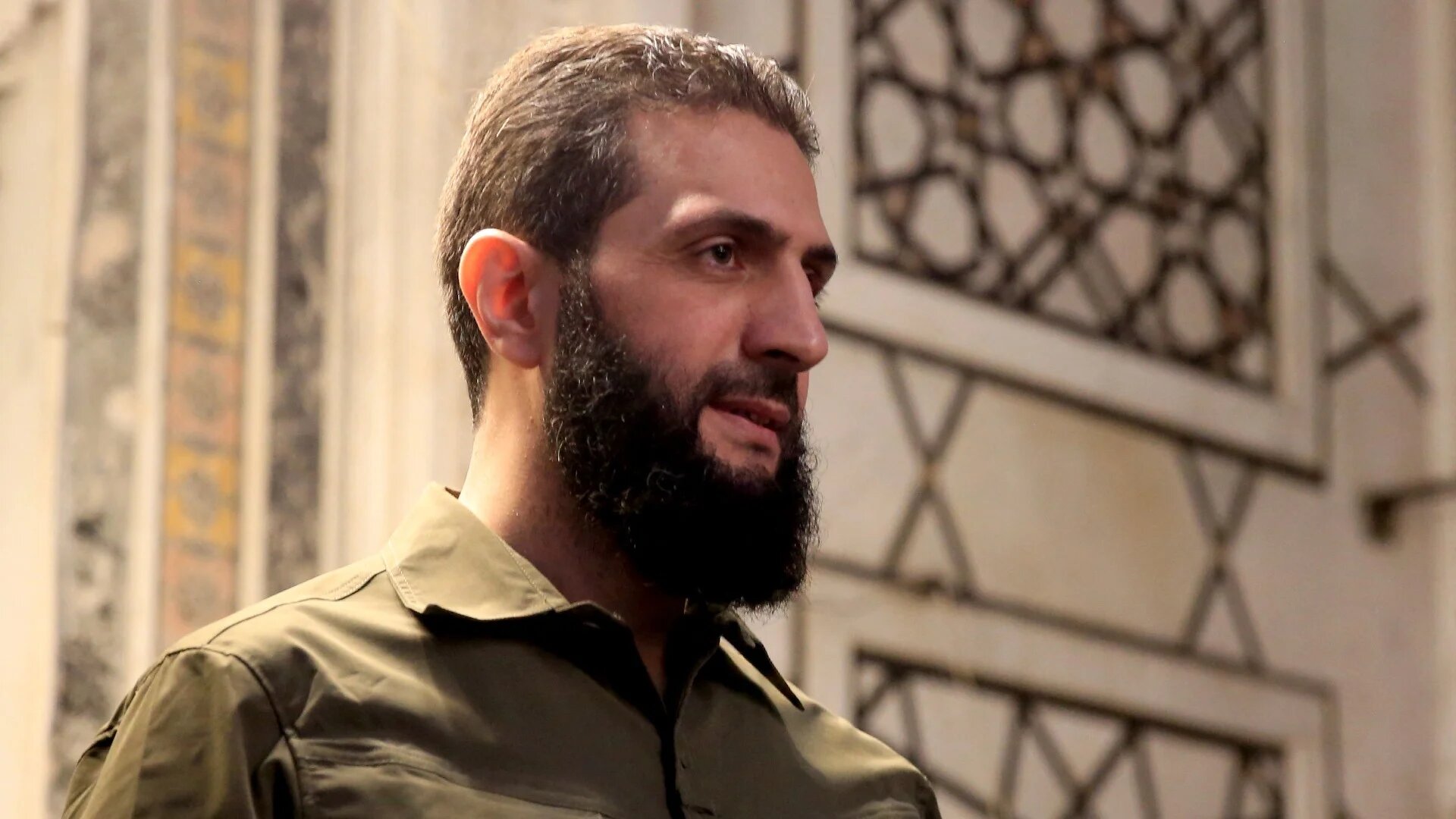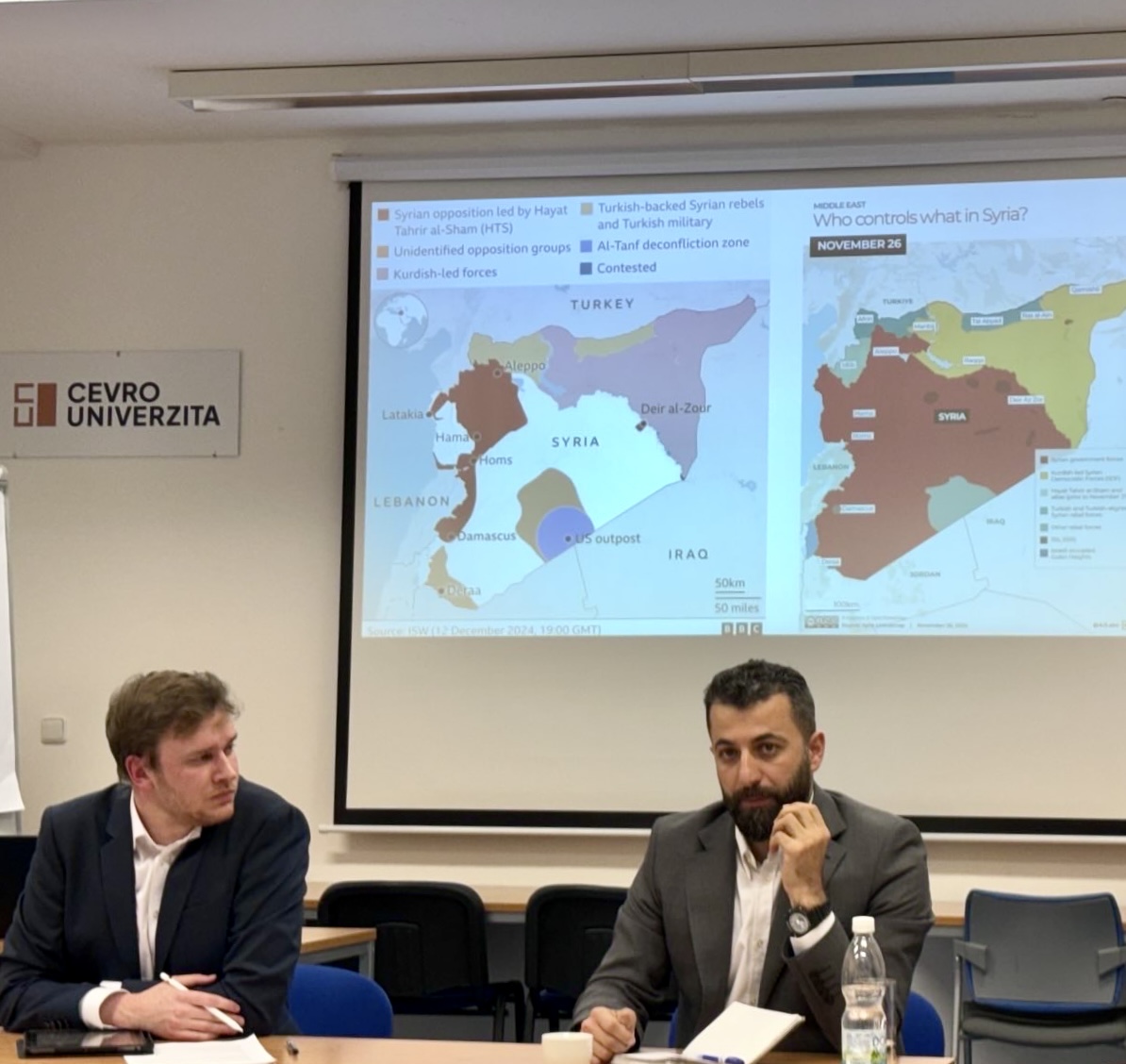Roundtable “HTS and the Remaking of Syria: Uncertainty, Islamist Rule, and Regional Interests”
Date of publication: February 14, 2025

On February 12, 2025, the Prague Center for Middle East Relations (PCMR) of CEVRO University hosted a closed roundtable discussion entitled “HTS and the Remaking of Syria: Uncertainty, Islamist Rule, and Regional Interests” with Mohammed Ibrahim, political expert on the Syrian case.
Filip Sommer, Director of the PCMR, moderated the debate held under Chatham House Rules.
The event included a discussion on the current form of governance of the Islamist group Hayat Tahrir ash-Sham (HTS), which has become the dominant force in the country since the overthrow of the Assad regime. This discussion focused on the relationship between the HTS and other armed groups such as the Kurdish Syrian Democratic Forces (SDF), the Syrian National Army (SNA), and the Druze militias in the south of the country. The discussion focused in particular on the HTS’s attitude towards Syrian minorities such as the Alawites, Christians, Druse, and Kurds. Furthermore, the debate revolved around the main challenges for the newly installed Syrian Salvation Government (SSG), not only regarding the obstacles with a highly ethno-sectarian fragmented Syria, but also in trying to find a balance between relations with regional and global actors. Last but not least, the settlement issue in northeastern Syria, where negotiations between the Kurdish National Council (KNC) and the Democratic Union Party (PYD) or the influence of regional foreign actors such as Turkey, Qatar, or Saudi Arabia were discussed.
Background
On November 27, 2024, the Islamist group HTS, a former affiliate of al-Qaeda, launched a large-scale offensive on the northern Syrian city of Aleppo. It quickly seized control of several key cities, including Hama and Homs. On December 8, the remnants of the Free Syrian Army (FSA) captured the capital, Damascus, which accelerated the collapse of the Syrian regime. President Bashar al-Assad fled to Russia, where he was granted asylum.
The rapid advance of HTS has been attributed to geopolitical shifts in the region, particularly the weakening influence of Russia and Iran, as well as the lack of preparedness, low morale, and limited capacity of the Syrian Arab Army (SAA). HTS has emerged as the primary governing force along Syria’s north-south axis. This armed group now holds the dominant position on the ground, with its leader, Ahmed al-Shara (nom de Guerre Mohammed al-Jolani), attempting to navigate a pragmatic path in dealing with local, regional, and global actors. However, governing Syria presents far greater challenges than ruling Idlib, and HTS faces significant obstacles in leading the country out of its multiple crises.
Meanwhile, in the north, Turkey and its SNA factions continue to exert pressure on the SDF and other Kurdish groups in an effort to curtail their autonomy in the northeast, which remains under the administration of the Democratic Autonomous Administration of North and East Syria (DAANES).
Speaker’s Bio
Mohammad Ibrahim is currently a political expert on the Syrian case. In the past, Mohammad worked with the USAID-funded Post-ISIS Syria’s Stabilization Program for several years, conducting research focused on restoring basic services, strengthening inclusive, accountable, and participatory local governance, and restoring livelihoods. He also has extensive experience in Access, Safety, and Security for several humanitarian organizations in Syria since the beginning of the conflict.
Image source: https://www.middleeasteye.net/news/ahmed-sharaa-new-syria-defined-forgiveness-amnesty


